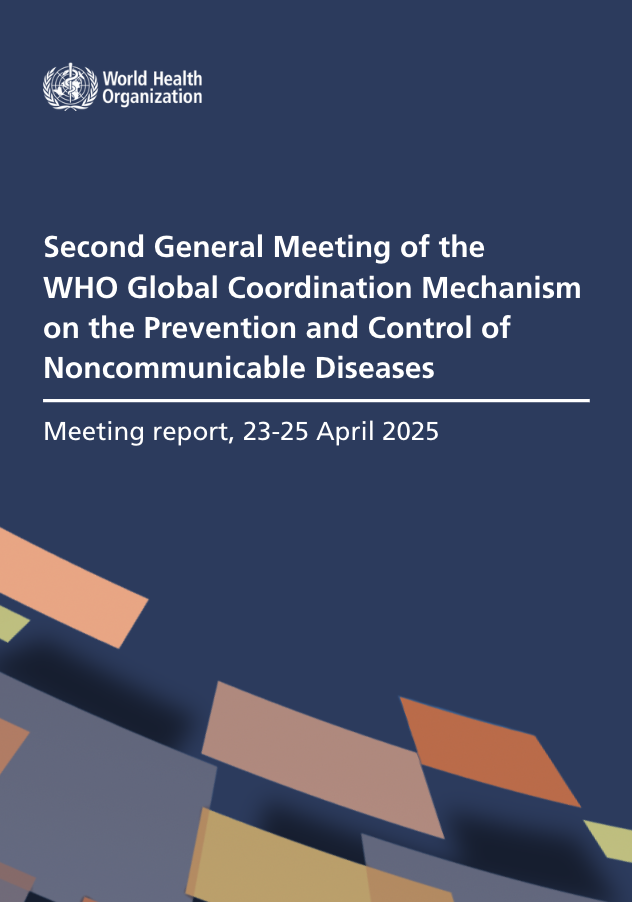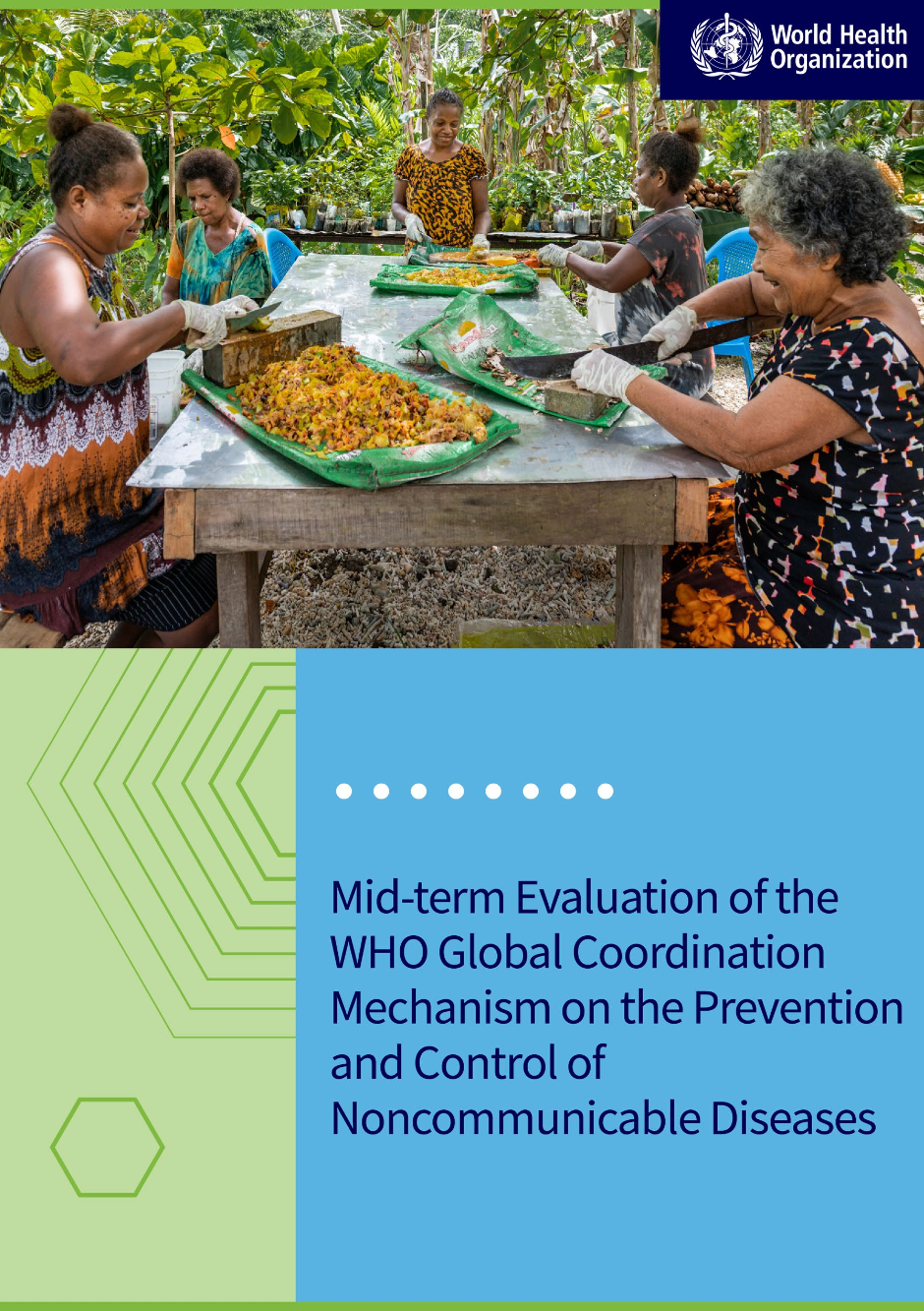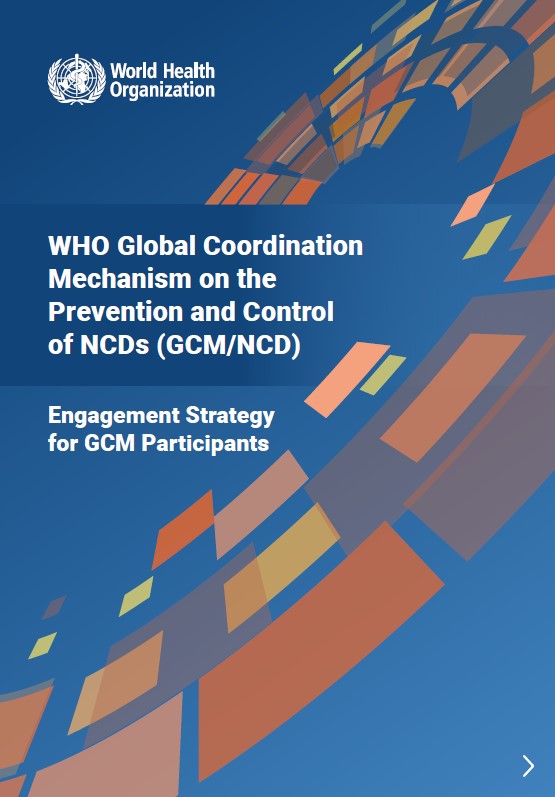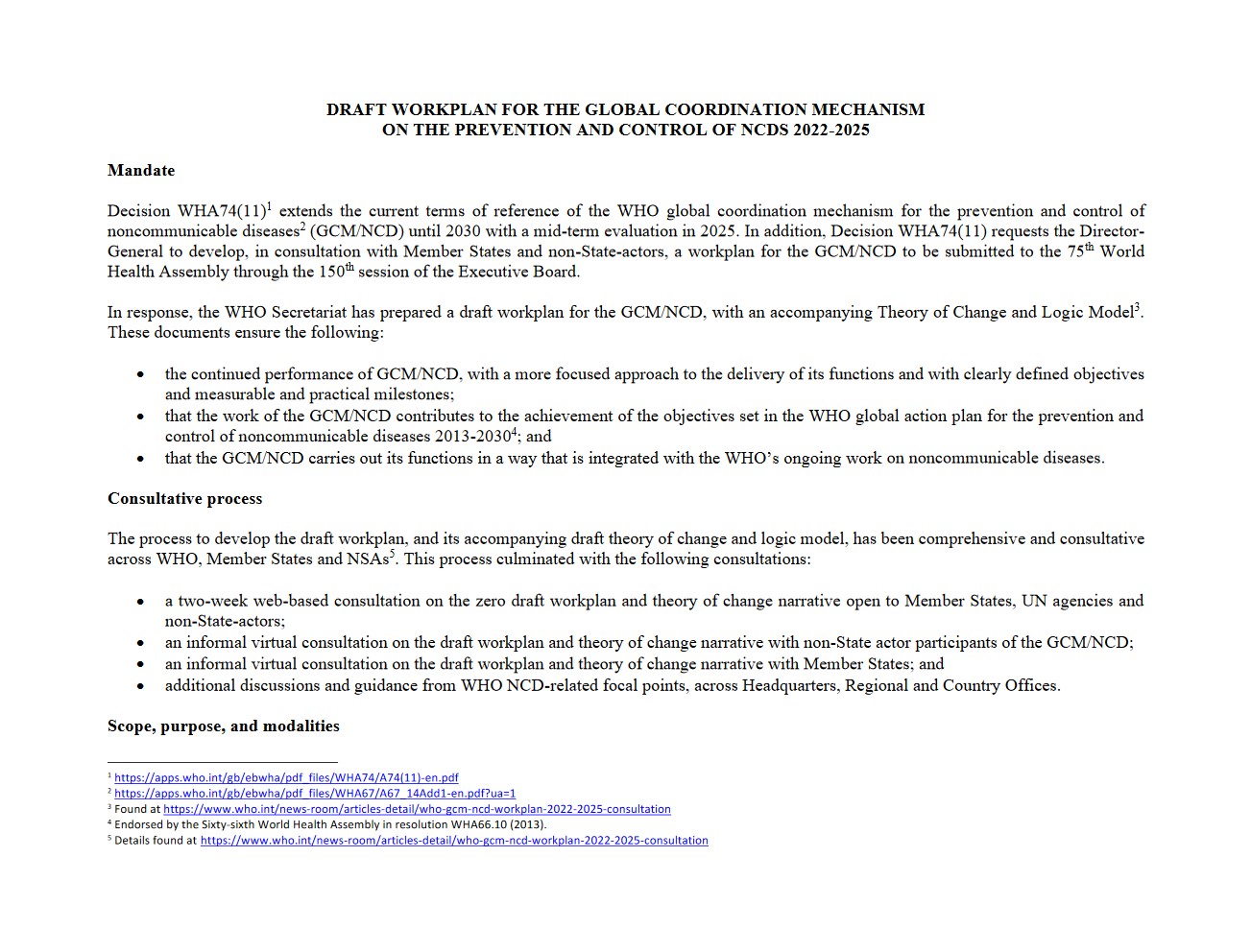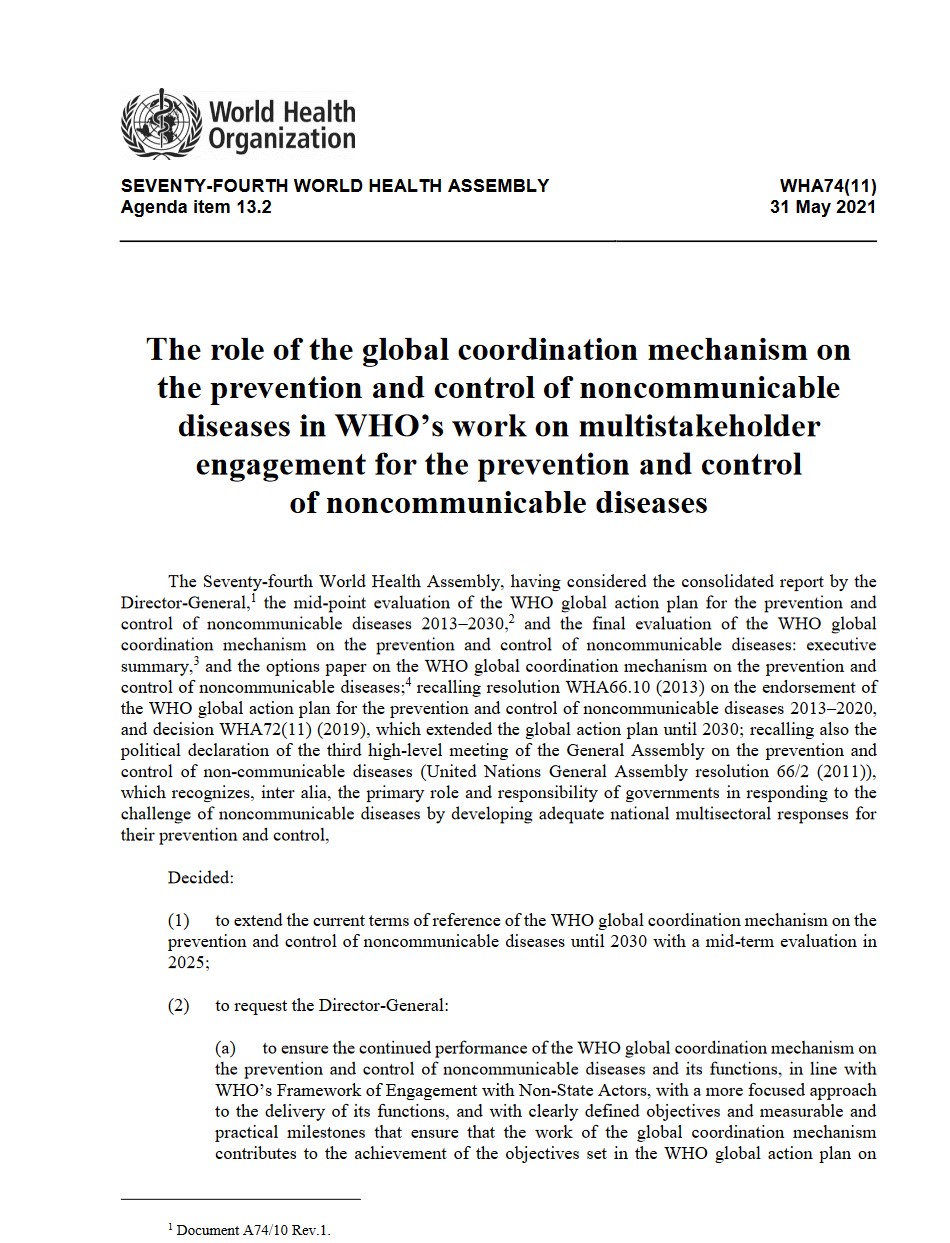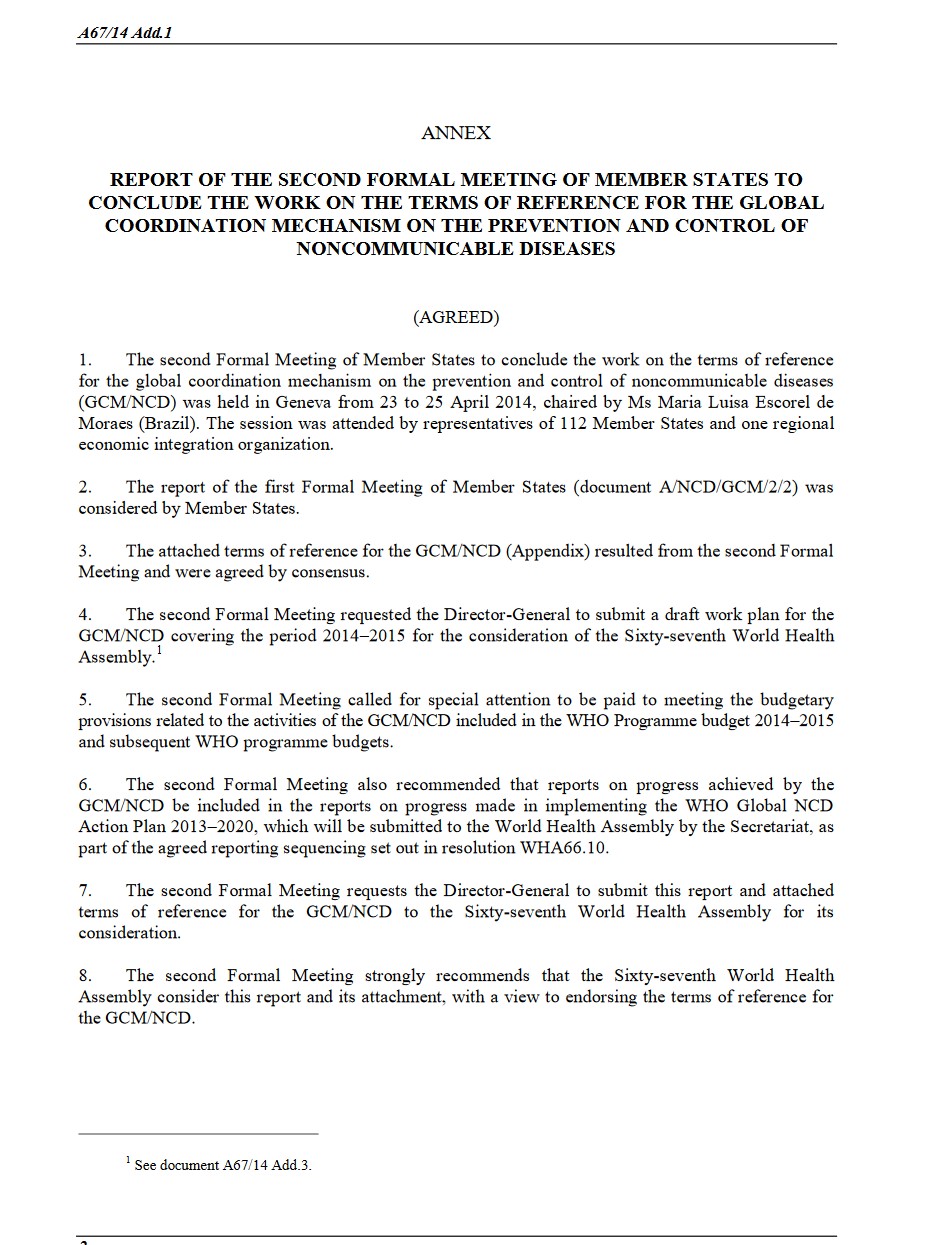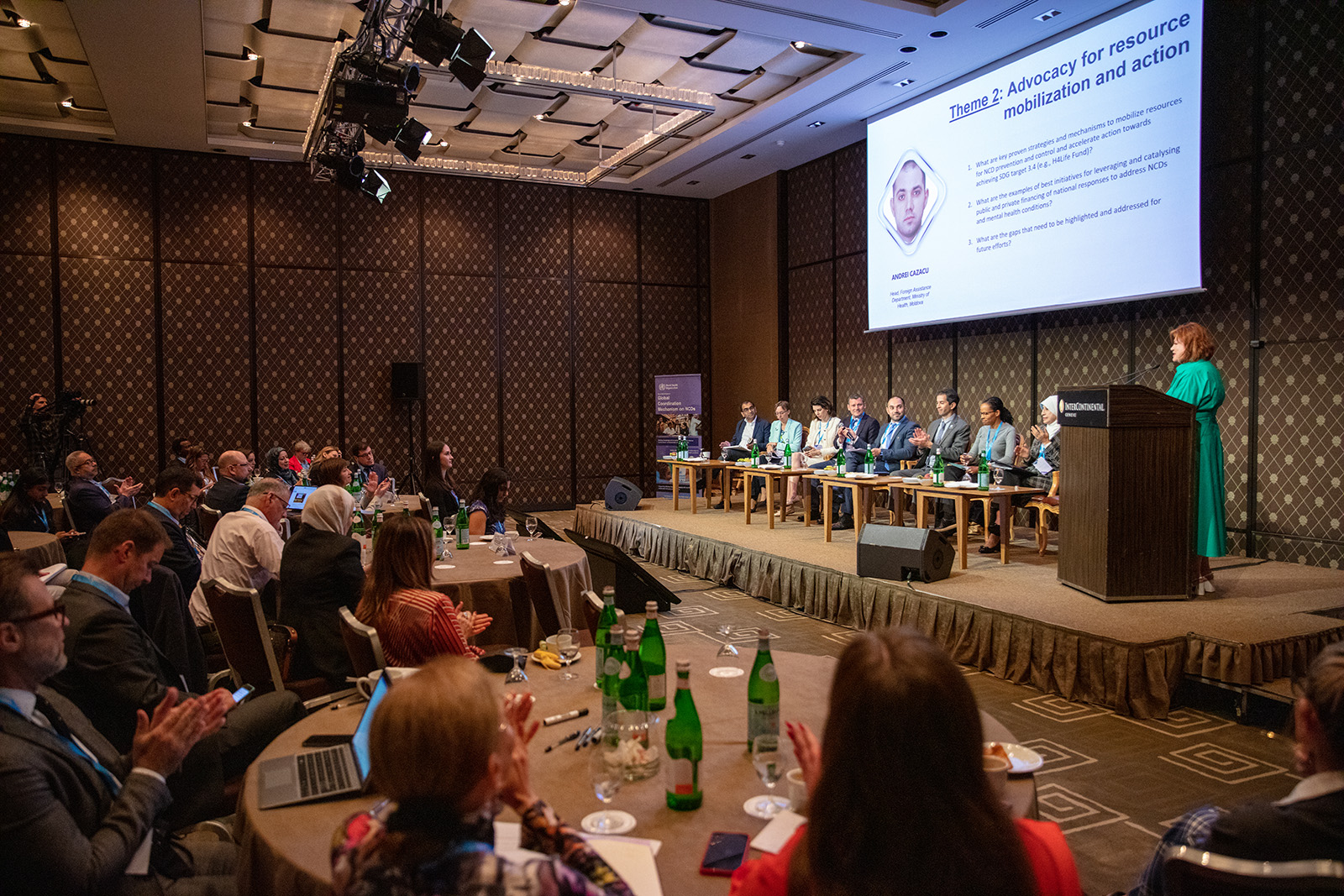A whole-of-society approach responding to NCDs: WHO GCM/NCD
The World Health Organization’s Global Coordination Mechanism on the Prevention and Control of Noncommunicable Diseases (WHO GCM/NCD) was established by Member States in 2014 to support countries in advancing their NCD response through multisectoral government action and multistakeholder engagement.
The GCM/NCD actively facilitates knowledge sharing and joint action among government sectors, non-State actors, communities and people living with NCDs, mental health, and neurological conditions – ensuring their meaningful inclusion in shaping a coherent and equitable NCD and mental health response.







